Intellau_Celistic
5'3 KHHV Mentalcel
-
- Joined
- Aug 26, 2021
- Posts
- 166,411
Lifefuel for manlets.This image is anti semitic
View attachment 630130













In Voltaire's A Philosophical Dictionary, he wrote of Jews: "In short, we find in them only an ignorant and barbarous people, who have long united the most sordid avarice with the most detestable superstition and the most invincible hatred for every people by whom they are tolerated and enriched."[153] Telushkin states that Voltaire did not limit his attack to aspects of Judaism that Christianity used as a foundation, repeatedly making it clear that he despised Jews.[150]
"This is for Gohan!"
The Ashkenazim...a group bestowed with "high IQ"! Their VIQ is quite phenomenal:
One feature that stands out in the Jewish cluster: The We’ve yet to find evidence that Jewish intelligence or philanthropy is genetic.average verbal IQ score among Jews is 120. Translate that into percentiles and we discover that the average Jew is a “one out of ten”—brighter than 91% of the population. That may explain why Jews, at only 1.4% of the American population, make up 22% of Ivy League students, 20% of America’s chief executives and have earned 25% of the Nobel Prizes awarded to American scientists (not including Jews born outside the US, such as Albert Einstein) since 1950—32% worldwide in the 21st century—and 52%(!) of Pulitzer Prizes for nonfiction (the key is verbal IQ).1
https://www.chabad.org/library/article_cdo/aid/498027/jewish/Are-Jews-a-Race.htm
In Commentary in April 2007, Charles Murray, the coauthor of The Bell Curve (1994), again made the claim that “Jews are smarter” than everyone else (Murray, 2007). In The Bell Curve, he and his late (and Jewish) coauthor, Richard Herrnstein, first presented their argument about the intellectual superiority of “Ashkenazic Jews of European origins,” who “test higher than any other ethnic group (Murray and Herrnstein, 1994). Jews in America and Britain have an overall IQ mean somewhere between a half and a full standard deviation above the mean, with the source of the difference concentrated in the verbal component.” Murray again makes the argument of an unmistakable “Jewish Genius,” in Commentary, but now with an explanation:
But is it all in the genes? So far, no real evidence. No “Jewish genes” for IQ scores have turned up, nor for scientific innovation (although over 500 genes have been found related to intelligence, so we may not be far).
Indeed. The research shows something quite different, dear Jew:

(Mine)
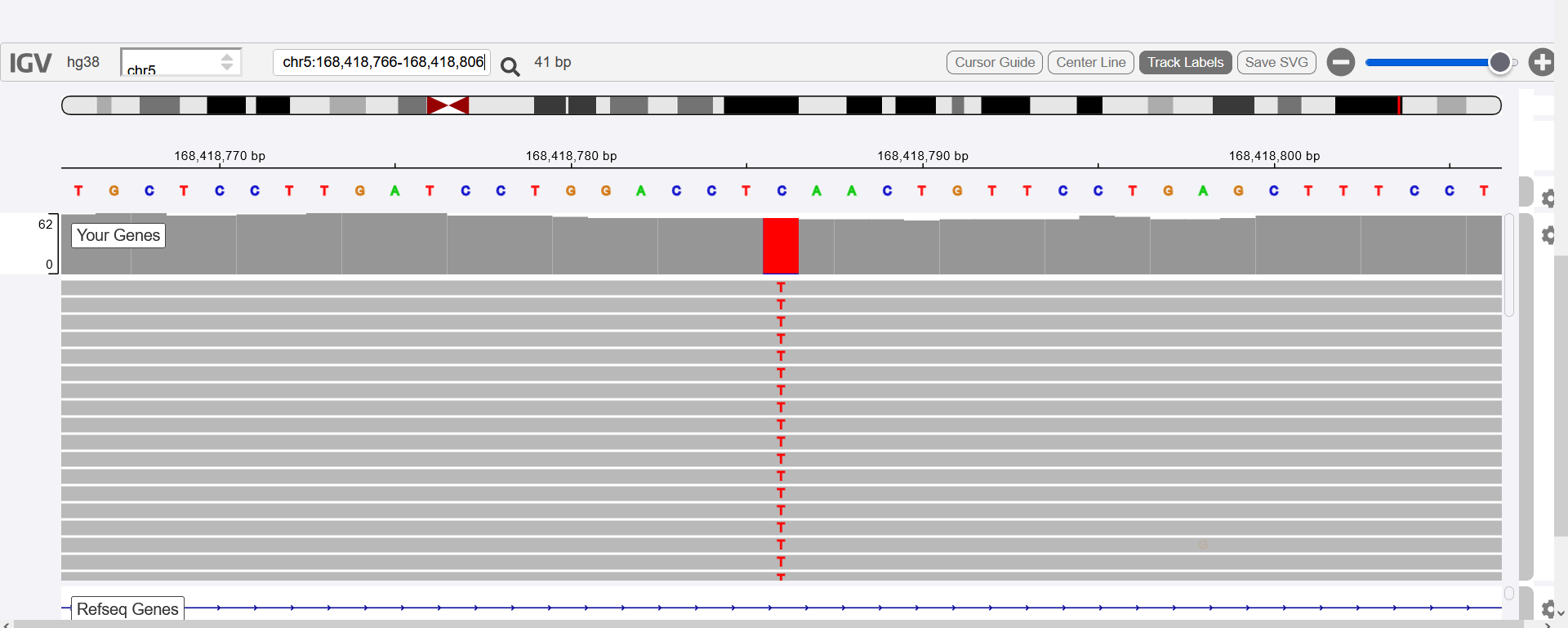
(Also mine)
We gather more evidence:
In a sample of 25 pairs of EOS proband-healthy full sibling, we sought to investigate the association of KIBRA with memory performance. Episodic memory was measured using immediate and delayed recall measures of the California Verbal Learning Test. In a combined analysis (TT vs. TC/CC) assuming a C dominant model of inheritance, we found a main effect of genotype where individuals with TT genotype outperformed non-TT-carriers at immediate and delayed recall.
Association of KIBRA rs17070145 polymorphism with episodic memory in the early stages of a human neurodevelopmental disorder - PubMed
A common T/C polymorphism within the ninth intron of the KIBRA gene (rs17070145) is thought to influence memory in humans. Since cognitive impairment, including memory, is a core feature of schizophrenia, we attempted to investigate this association in an independent sample of adolescent...
pubmed.ncbi.nlm.nih.gov
https://www.researchgate.net/profile/Theresa-Koebe-2/publication/266794442_Impact_of_KIBRA-SNP_rs17070145_on_memory_performance_and_hippocampal_volume_and_microstructure_of_healthy_older_adults/links/543bd92c0cf204cab1db413b/Impact-of-KIBRA-SNP-rs17070145-on-memory-performance-and-hippocampal-volume-and-microstructure-of-healthy-older-adults.pdf
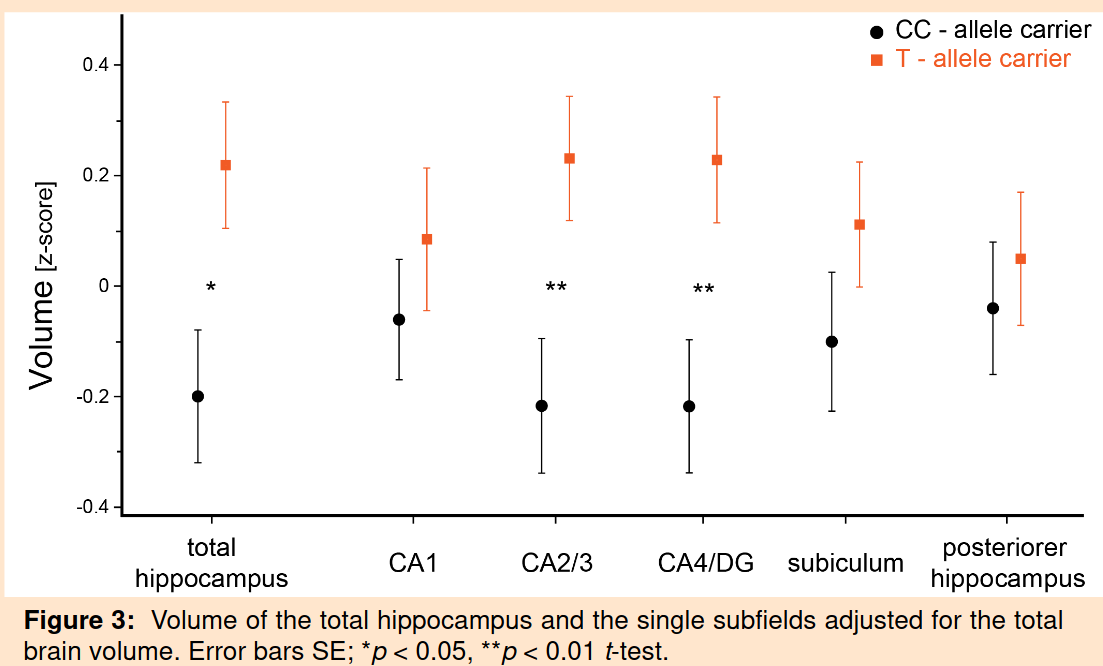
We report a significant association of rs17070145 with both episodic (r = 0.068, P = 0.001) and working memory (r = 0.035, P = 0.018). In summary, our findings indicate that SNP rs17070145 located within KIBRA explains 0.5% of the variance for episodic memory tasks and 0.1% of the variance for working memory tasks in samples of primarily Caucasian background.
https://onlinelibrary.wiley.com/doi/abs/10.1002/ajmg.b.32101
Moreover, among older adults T-allele carriers of the examined KIBRA polymorphism showed better spatial learning compared to C homozygotes. Together these findings provide the first evidence for an effect of the KIBRA rs17070145 polymorphism on spatial memory in humans and age differences in the reliance on landmark and boundary-related spatial information.
https://onlinelibrary.wiley.com/doi/abs/10.1002/hipo.22148
A genotype that increases VIQ? And perhaps even PIQ? How common is it among the "Chosen Race"?
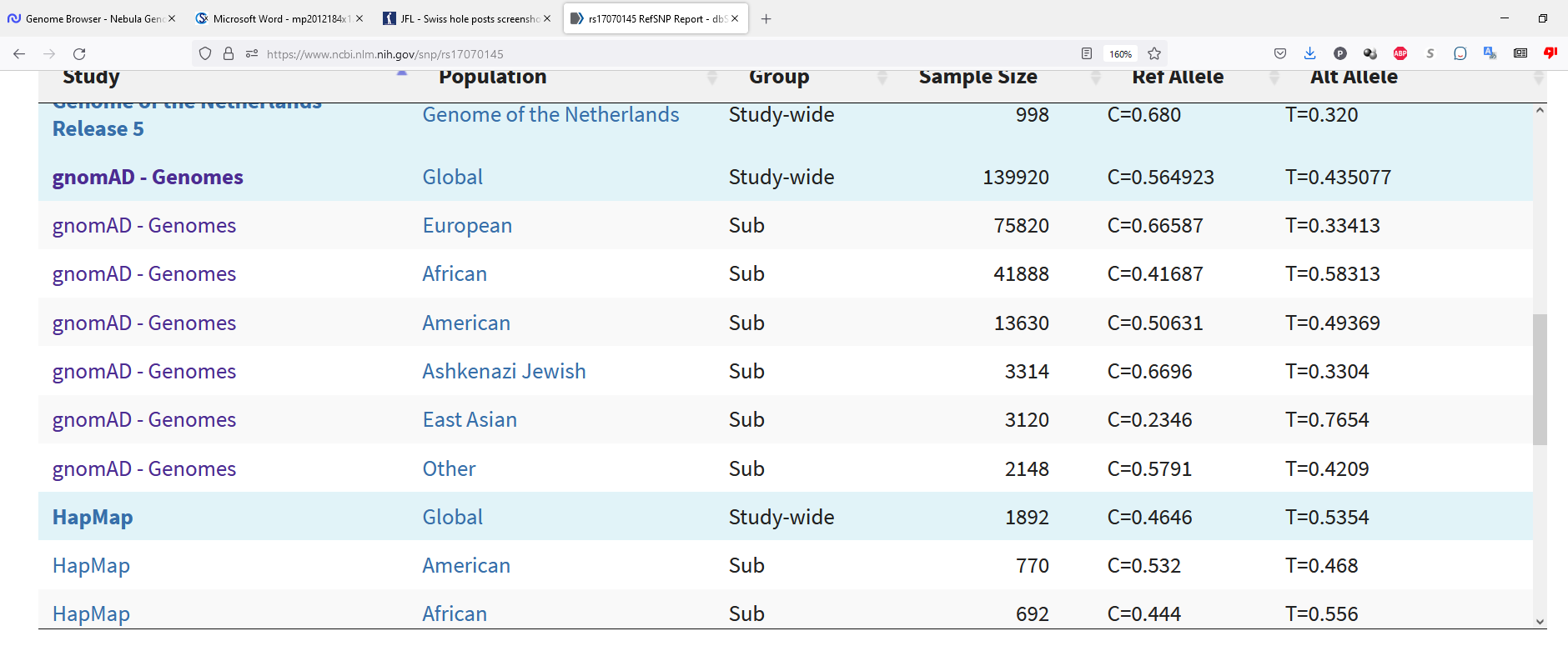
A variant common in East Asians yet noticeably absent among the Jews? And the rate appears to mirror the rate of TT genotype in Europeans. Most interesting for a "Superior" race.
Let us continue:
https://citeseerx.ist.psu.edu/viewdoc/download?doi=10.1.1.997.316&rep=rep1&type=pdf
(Nine cohorts)
Intelligence measure: Participants’ cognitive ability was measured at their intake
assessment, using a short form of the Wechsler Adult Intelligence Scale-Revised (WAIS-R)
for participants age 16 or older, or the Wechsler Intelligence Scale for Children-Revised
(WISC-R) for those younger than 16. The short-form consisted of two Verbal subtests
(information and vocabulary) and two Performance subtests (block design and picture
arrangement), selected because performance on these subtests correlates .90 with overall IQ 30 .
An estimate of full-scale IQ was determined by prorating the scaled scores for these four
subtests

(Mine)
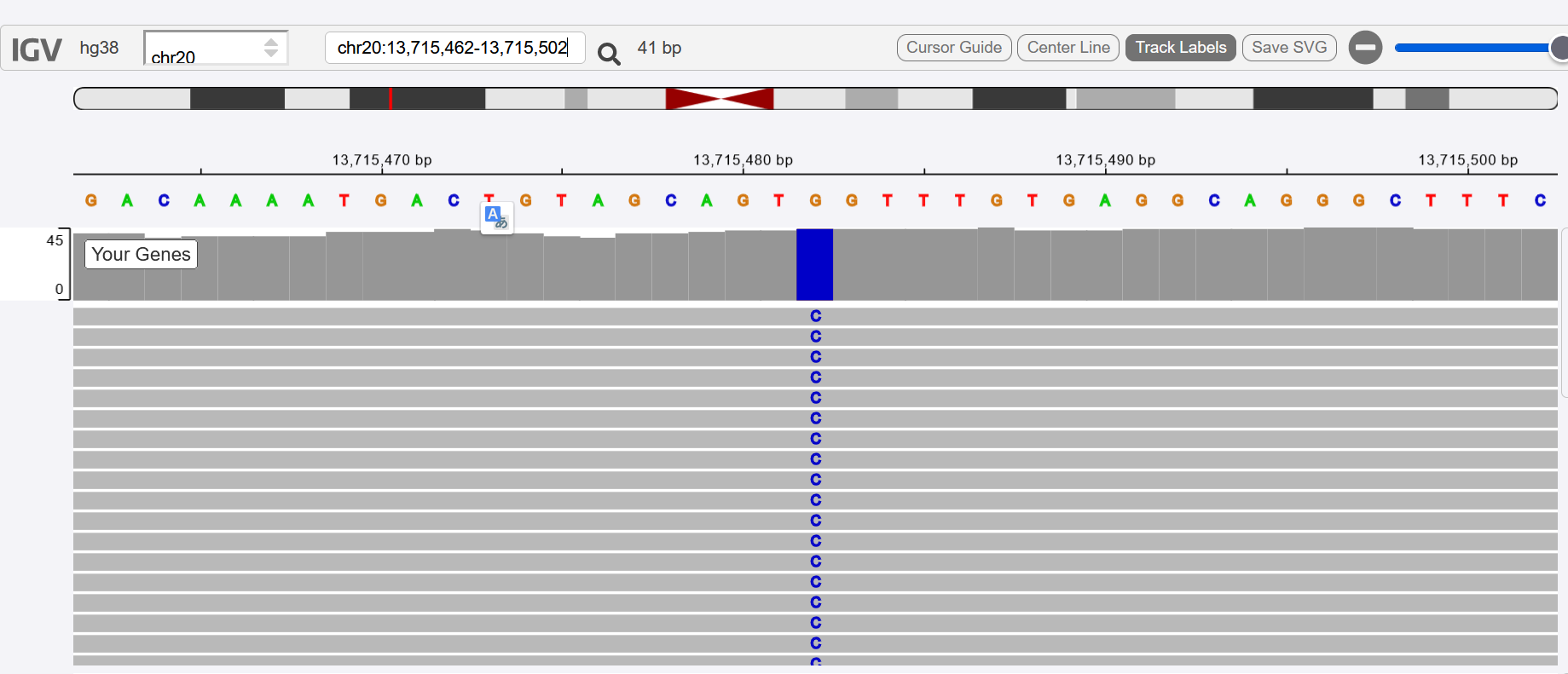
(Also mine)

(rs6042314 is consistently replicated as an IQ gene)
Frequency among the Jews? Well, it seems to be unknown.
However:

The frequency is quite high among Europeans and East Asians, so surely this gene did not influence the Jewish IQ?
Our last gene:
A genome-wide analysis of putative functional and exonic variation associated with extremely high intelligence - Molecular Psychiatry
Although individual differences in intelligence (general cognitive ability) are highly heritable, molecular genetic analyses to date have had limited success in identifying specific loci responsible for its heritability. This study is the first to investigate exome variation in individuals of...
www.nature.com
lthough individual differences in intelligence (general cognitive ability) are highly heritable, molecular genetic analyses to date have had limited success in identifying specific loci responsible for its heritability. This study is the first to investigate exome variation in individuals of extremely high intelligence. Under the quantitative genetic model, sampling from the high extreme of the distribution should provide increased power to detect associations. We therefore performed a case–control association analysis with 1409 individuals drawn from the top 0.0003 (IQ >170) of the population distribution of intelligence and 3253 unselected population-based controls. Our analysis focused on putative functional exonic variants assayed on the Illumina HumanExome BeadChip. We did not observe any individual protein-altering variants that are reproducibly associated with extremely high intelligence and within the entire distribution of intelligence. Moreover, no significant associations were found for multiple rare alleles within individual genes. However, analyses using genome-wide similarity between unrelated individuals (genome-wide complex trait analysis) indicate that the genotyped functional protein-altering variation yields a heritability estimate of 17.4% (s.e. 1.7%) based on a liability model. In addition, investigation of nominally significant associations revealed fewer rare alleles associated with extremely high intelligence than would be expected under the null hypothesis. This observation is consistent with the hypothesis that rare functional alleles are more frequently detrimental than beneficial to intelligence.
Click to expand...
Click to expand...
A genome-wide analysis of putative functional and exonic variation associated with extremely high intelligence - Molecular Psychiatry
Although individual differences in intelligence (general cognitive ability) are highly heritable, molecular genetic analyses to date have had limited success in identifying specific loci responsible for its heritability. This study is the first to investigate exome variation in individuals of...
www.nature.com
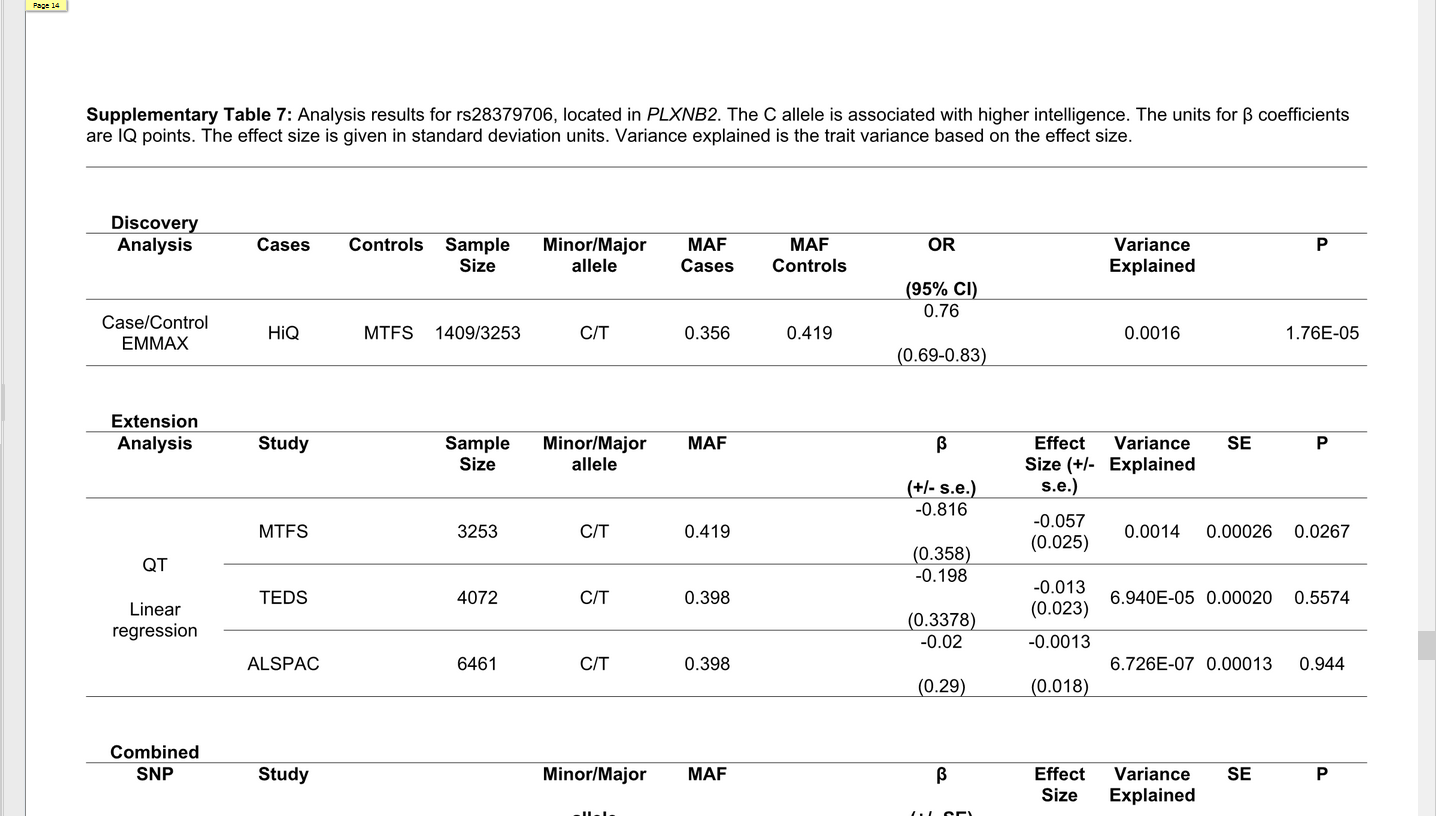
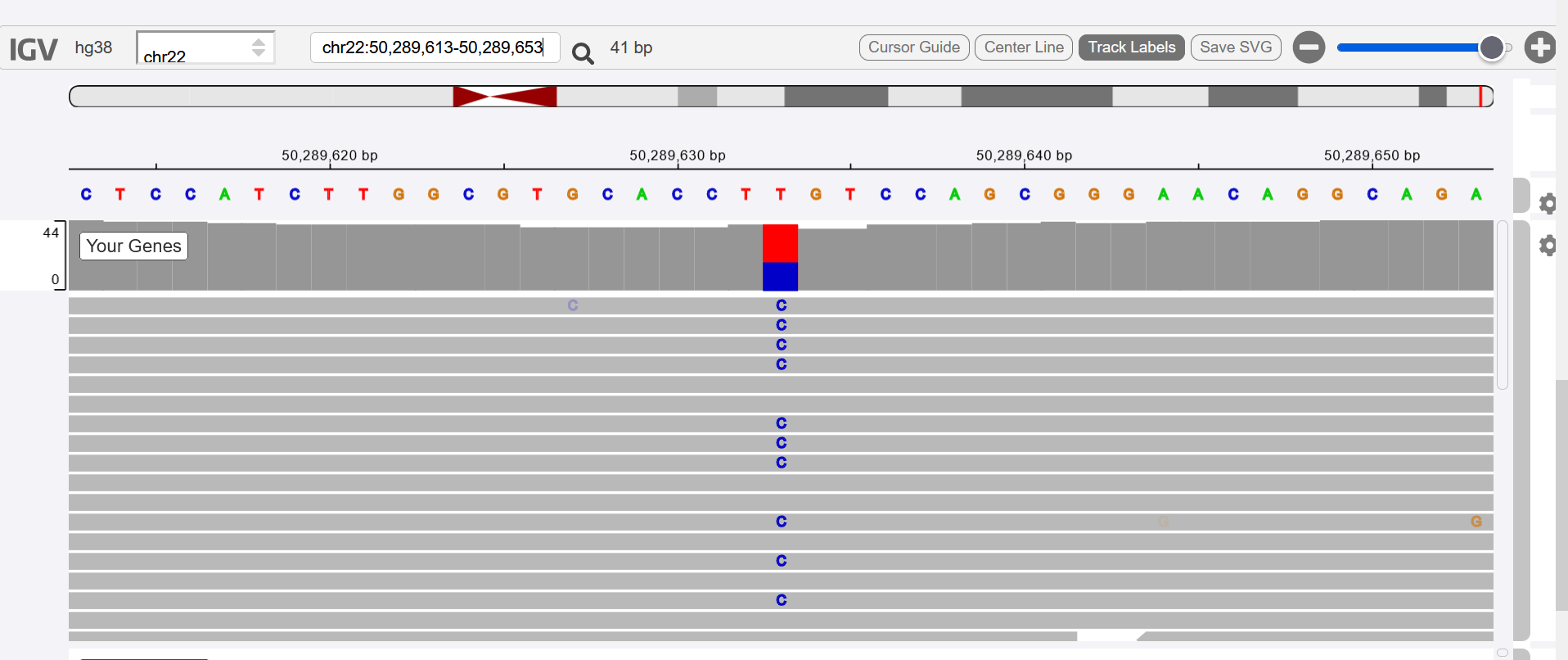
(My Sample)
Frequency in Jews:

Again...quite rare in the Ashkenazim. Quite common in East Asians.

 incels.is
incels.is
Ragefuel for (((@faded)))






